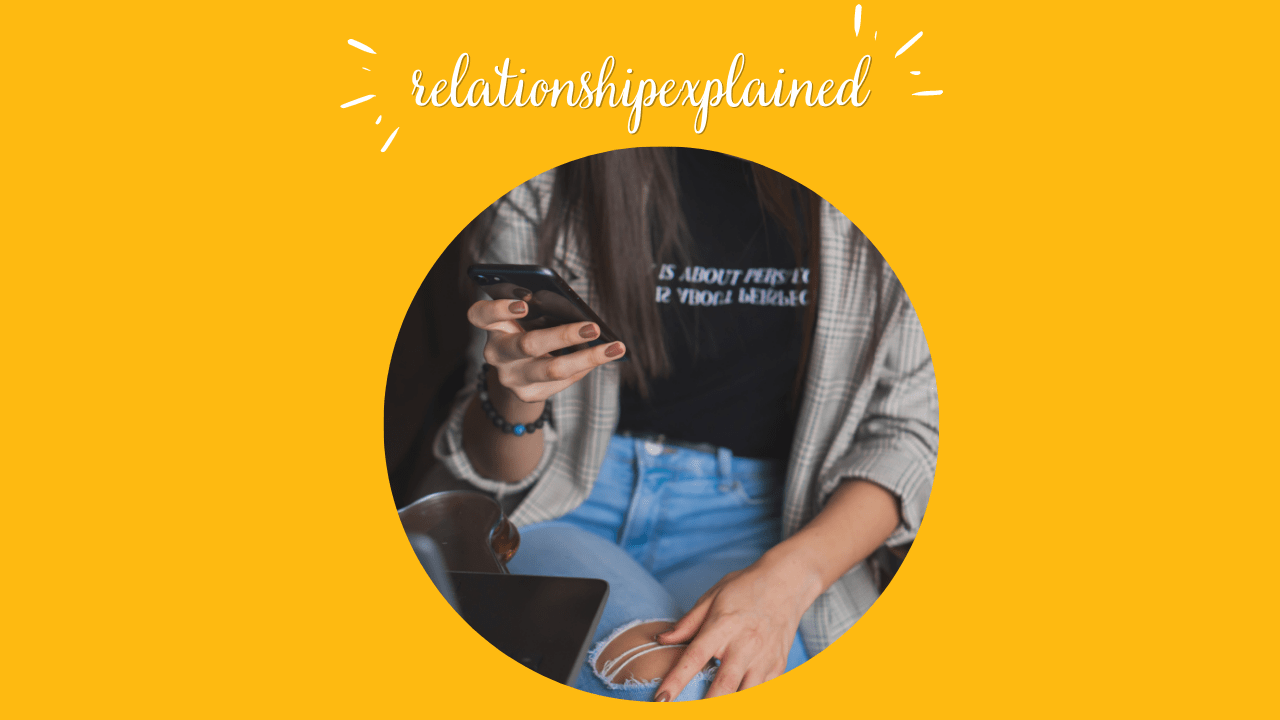In our fast-paced world, it’s easy to overlook the significance of checking in on one another. A simple question, "Are you okay?" can be powerful. It opens the door to conversations that may reveal deeper struggles or emotional states that we may not initially recognize. Understanding the importance behind this inquiry not only fosters empathy but can also save lives. Let’s dive into why asking someone if they're okay holds so much meaning in our lives.
Understanding the Importance of Inquiring
When you ask, "Are you okay?" you're doing more than just throwing words into the air; you're actively showing that you care. This question can be a lifeline, particularly for those who may feel isolated or overwhelmed by life's challenges. Here are several reasons why this inquiry is crucial:
- Promotes Emotional Well-being: Checking in can provide an opportunity for individuals to express their feelings and emotional states. Feeling appreciated and cared for can work wonders on one's mental health.
- Builds Trust and Relationships: A culture where asking such questions is normalized fosters trust. When people know they can share their struggles without fear of judgment, it strengthens bonds.
- Identifies Hidden Struggles: Sometimes, people might not reach out for help. Your simple question could encourage them to open up about things they have kept bottled in, potentially exposing issues they didn’t even know were affecting them.
- Reduces the Stigma Around Mental Health: Actively initiating conversations about well-being contributes to destigmatizing mental health discussions. It normalizes reaching out for support and recognizing when someone needs help.
Inquiring about someone's well-being is a small act with significant impact. The more we practice this, the more we contribute to a supportive community where everyone feels valued and understood.
3. Signs That Someone May Need Support
Recognizing when someone is struggling can be challenging, but there are often tell-tale signs that indicate they might need a little extra support. Here are some common signs to look out for:
- Changes in Behavior: If someone who usually chats with you becomes withdrawn or irritable, it might signal that they’re battling something beneath the surface.
- Decline in Interest: Notice if they’re no longer interested in hobbies or activities they used to love. This could be a sign they’re feeling overwhelmed.
- Changes in Sleep Patterns: Experiencing insomnia or finding it hard to get out of bed can often indicate someone is struggling internally.
- Physical Symptoms: Frequent headaches, stomachaches, or other unexplained physical issues can be manifestations of mental distress.
- Social Withdrawal: If they’re isolating themselves and avoiding social interactions, it may suggest they’re feeling vulnerable or lost.
When you notice one or more of these symptoms, it’s crucial to approach them with empathy and kindness. Just asking, “Are you okay?” can open the door for a supportive conversation.
4. The Positive Impact of Asking Are You Okay
Asking “Are you okay?” is more than just a commonplace greeting; it can have profound effects on someone's mental and emotional wellbeing. Here’s how this simple question can create a ripple of positive change:
- Creates Connection: By reaching out, you bridge the gap and show that you care. This can make others feel less alone in their struggles.
- Encourages Expression: When you ask someone if they’re okay, you give them permission to open up about their feelings, which can be a powerful release.
- Promotes Awareness: Regularly asking about someone’s wellbeing helps foster a culture where mental health is a priority, encouraging others to speak up too.
- Conveys Support: It shows that you’re available to listen and help. Sometimes, just knowing someone is there can make all the difference.
In essence, when you ask “Are you okay?” you may be the catalyst that helps someone start their path to healing. Your simple act of kindness can plant the seeds for a more communicative and supportive environment.
How to Approach the Conversation
Starting a conversation about mental health or emotional well-being can sometimes feel daunting. However, approaching the topic with care and empathy is key. Here are some steps to consider when you're thinking about asking someone, "Are you okay?"
- Choose the Right Setting: Privacy is essential. Find a quiet and comfortable space where the person feels safe to express themselves. Avoid places where they might feel exposed or rushed.
- Be Genuine: Approach the conversation with authenticity. Use a warm tone and body language that conveys your sincere concern. It’s important they know you’re coming from a place of care.
- Start Lightly: You don’t need to dive into deep discussions right away. Start with light conversation or talk about shared interests before gently segueing into more personal topics.
- Use “I” Statements: Instead of directly asking, “Are you okay?” you might say something like, “I’ve noticed you seem a bit off lately, and I just wanted to check in on you.” This makes it less confrontational and encourages openness.
- Be Patient: Give them the time they need to express themselves. Sometimes, people may not be ready to talk immediately. Let them know that you’re available whenever they feel comfortable.
At the end of the day, the goal is to communicate that you genuinely care and that they’re not alone in whatever they may be going through.
Responding Appropriately When Someone Opens Up
When someone takes the brave step to open up about their feelings or struggles, how you respond is incredibly important. It can mean the difference between fostering trust and potentially pushing them away. Here are some helpful tips for responding appropriately:
- Listen Actively: Pay full attention to what they’re saying. Nod, use affirming words like "I see" or "That makes sense," and avoid interrupting. This shows you value their feelings.
- Avoid Judgment: It’s crucial to create a non-judgmental space. Don’t dismiss their feelings or experiences, even if they seem trivial to you. Every person's struggle is valid.
- Show Empathy: Use empathetic statements like, “That sounds really tough,” or “I can only imagine how that must feel.” This helps them feel understood and supported.
- Offer Support: Let them know you’re there for them, whether that means listening, helping them find professional resources, or simply spending time together. Ask, “How can I support you?”
- Respect Their Boundaries: Sometimes, they may not want to talk about things in detail. Respect that and let them lead the conversation. The key is to be there without being overwhelming.
Ultimately, being a supportive listener can make a world of difference for someone who is struggling, reinforcing that they matter and that they are not alone.
Creating a Supportive Environment
Creating a supportive environment is crucial for fostering meaningful connections and promoting mental well-being. When individuals feel safe, understood, and valued, they're more likely to open up about their feelings and struggles. So, how can we cultivate this kind of environment? Let's break it down:
- Encourage Open Communication: Make it a habit to check in on those around you. Simple phrases like "Are you okay?" can pave the way for deeper conversations. Be genuine in your approach, and listen actively when they respond.
- Be Non-Judgmental: It's essential to create a space where people feel free to express themselves without fear of being judged. This means listening without interrupting and refraining from offering unsolicited advice right away.
- Empathy is Key: Show empathy in your interactions. When someone shares their feelings, acknowledge their experiences and validate their emotions. A simple "That sounds really tough" can mean the world.
- Offer Resources: Sometimes, people need more than just a friend to talk to. Ensure that resources, like mental health professionals or community support groups, are accessible. Share this information discreetly to let them know help is available.
- Lead by Example: Don't hesitate to share your own experiences. When you normalize discussing struggles, it encourages others to do the same. This transparency builds trust and opens the door for connection.
By integrating these practices into our daily lives, we can create a compassionate community where everyone feels supported and valued. Remember, it doesn’t always take grand gestures; often, the small, consistent actions are what make the most significant impact.
Conclusion
In today’s fast-paced world, taking a moment to pause and ask, “Are you okay?” can be transformative. It’s not just about a question; it’s about the layers of meaning behind it, conveying concern, openness, and support. Reaching out can make someone feel seen and heard, serving as a simple yet powerful reminder that they are not alone in their struggles.
But asking this question is just the beginning. It’s the steps that follow—creating a supportive environment, listening with empathy, and being present—that truly cultivate connection and promote healing. Each small act of kindness contributes to a larger movement towards mental well-being.
In light of this, let’s all commit to integrating these conversations into our daily lives. You never know the profound impact a simple inquiry can have. By nurturing an atmosphere of support and care, we empower not only ourselves but also those in our communities to open up, seek help, and ultimately find solutions together.
So, next time you feel prompted to ask, “Are you okay?” remember, it’s not just a question; it’s an invitation to deeper connection. Let’s make it a habit to check in on one another—not just today, but every day.

 admin
admin








